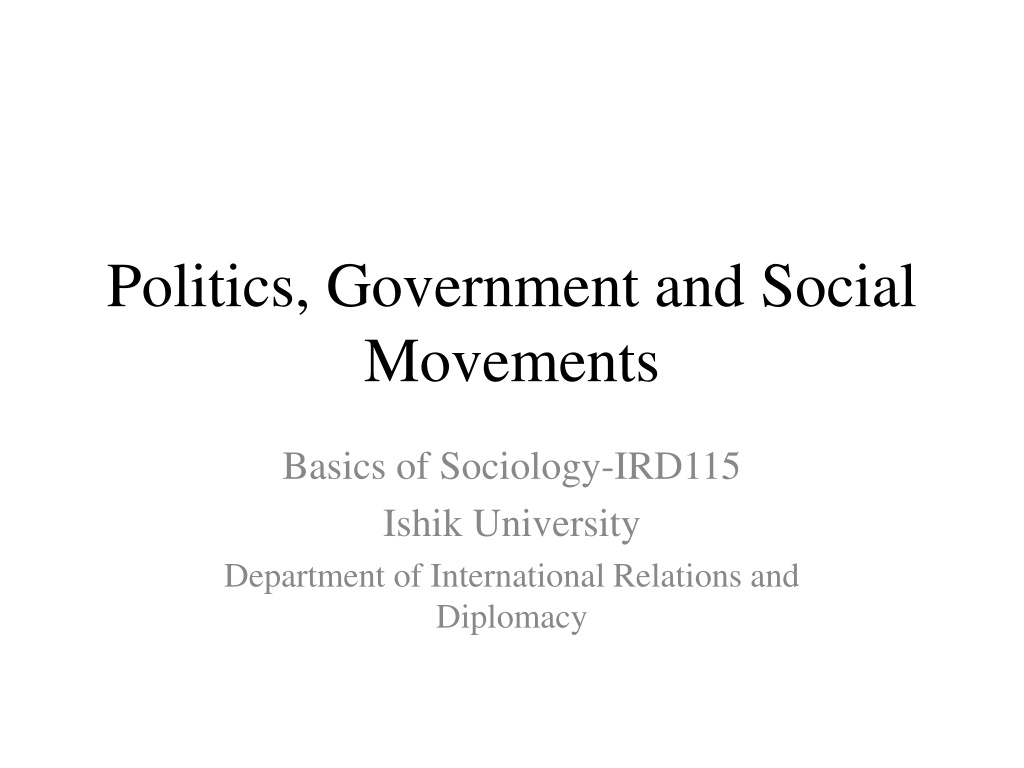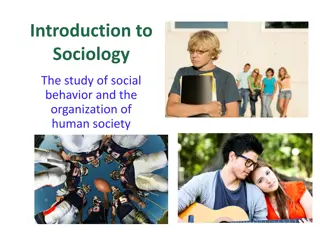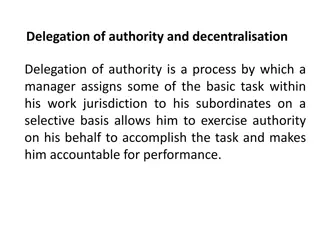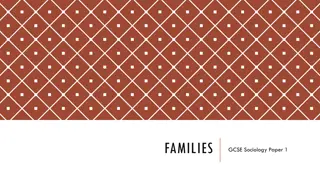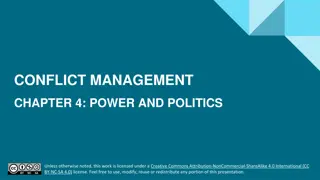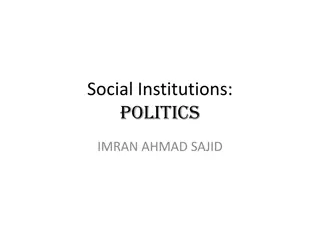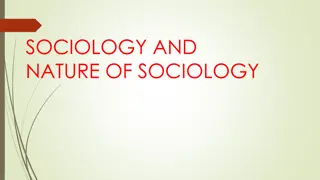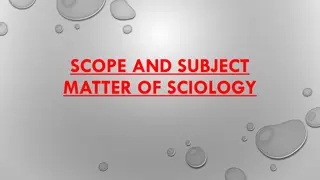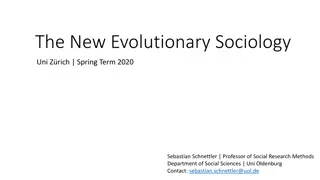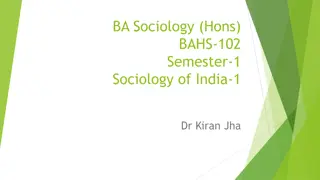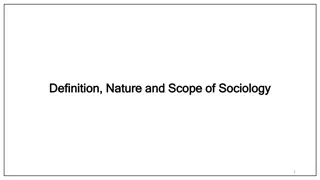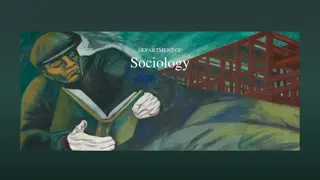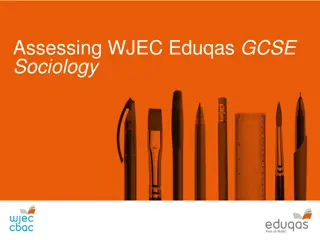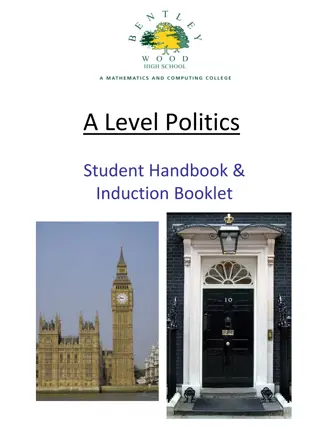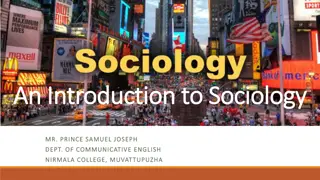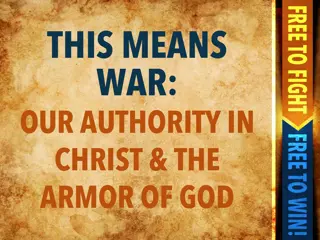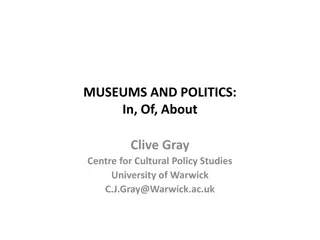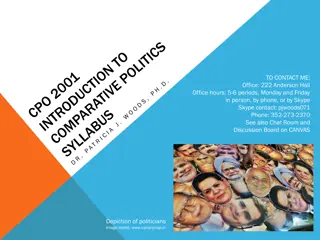Understanding Politics, Power, and Authority: Basics of Sociology
Politics encompasses the use of power to influence government activities, extending beyond to organizations and social movements. Power, as defined by Max Weber, refers to the realization of one's will despite resistance. Authority signifies accepted power that people agree to follow, often linked with respect. Max Weber's typology classifies authority into traditional, charismatic, and rational-legal types. It explores how government functions within the sphere of political power.
Download Presentation

Please find below an Image/Link to download the presentation.
The content on the website is provided AS IS for your information and personal use only. It may not be sold, licensed, or shared on other websites without obtaining consent from the author. Download presentation by click this link. If you encounter any issues during the download, it is possible that the publisher has removed the file from their server.
E N D
Presentation Transcript
Politics, Government and Social Movements Basics of Sociology-IRD115 Ishik University Department of International Relations and Diplomacy
Politics Means whereby power is used to affect the scope and content of government activities. Politics extends beyond government to include organizations and social movements that pursue political goals.
Power Max Weber: the chance of a man or a number of men to realize their own will in a command action even against the resistance of others who are participating in the action
Authority Authority power that is, power that people agree to follow. People listen to authority figures because they feel that these individuals are worthy of respect. refers to accepted
Class exercise: Give example for people who have authority/ power!
Max Weber and Typology of Authority/power Power Rational- legal Traditional Charismatic
1- Traditional power A legitimatized through respect for long-established cultural patterns. e.g power in a tribal structure power
2- Charismatic Charismatic: it is drawn from the devotion felt towards a his/her who believe that the leader exceptional that inspire devotion. leader subordinates by possesses qualities
3- Rational-Legal Rational-legal: power that is legitimized through legally rules and Power in positions or offices not people. that is enacted regulations. particular
Government and Nation-state the government is the scope of political power. All political life is about power: who holds it? How they achieve it and what they do with it. sphere of
Nation-state states in which great mass of consists of citizens who regard themselves part of a single nation. Key characteristics of nation-states are: population as
Characteristics of Nation-states Sovereignty: government possesses authority over an area with a clear-cut border, within which it is a super power. Citizenship: people who are living within the borders of a political system are citizens, having common rights and duties and regarding themselves as part of a nation. Nationalism: set of symbols and beliefs providing the sense of being part of a single political community. Thus, individuals feel a sense of pride and belonging in being British, Canadian and so on.
Forms of Government 1- Monarchy a monarchy is a government in which a single person (a monarch) rules until he or she dies or abdicates the throne. Usually, a monarch claims the rights to the title by way succession or as a result of some sort of divine appointment or calling. of hereditary
Absolute vs. ceremonial Monarchies constitutional monarchies: nations that recognize monarchs but require these figures to abide by the laws of a greater constitution. governments of
2- Oligarchy The power in an oligarchy is held by a small, elite group. Unlike in a monarchy, members of an oligarchy do not necessarily achieve their statuses based on ties to noble ancestry. Rather, they may ascend to positions of power military might, economic power, or similar circumstances. because of
3- Dictatorship Power in a dictatorship is held by a single person (or a very small group) that wields complete and authority over a government and population. Like some absolute dictatorships may be corrupt and seek to limit or even eradicate the liberties of the general population. absolute monarchies,
4- Democracy democracy government that strives to provide all citizens with an equal voice, or vote, in determining state policy, regardless of socioeconomic important fundamental democratic state establishment and governance of a just and constitution that roles and responsibilities of leaders and citizens alike. A is a form of their status. level Another of is of the the comprehensive delineates the
Forms of Democracy: Participatory Democracy Vs. Representative Democracy
Participatory Democracy Decisions are made communally by those affected by them. This was the original type of democracy practiced in ancient Greece. Participatory democracy significance in modern world, where the mass has political rights, and it would be impossible for everyone actively participate in the making of decisions that affect them. is of limited
Representative Democracy Political system in which decisions affecting a community are taken, not by its members as a whole, but by people they have elected for this purpose. Liberal democracy: countries in which voters can choose between two or more parties and in which the mass of the adult population has the right to vote
Social movements and Political Parties Collective further interest common goal through action outside sphere of institutions. attempt common secure to a or a the established
The Difference between social movements and political parties Social movements: Enduring collective attempts to change part or all of social order by means of rioting, petitioning, striking, demonstrating, and establishing pressure groups, and unions. Political parties: Organizations that seek to control state power.
